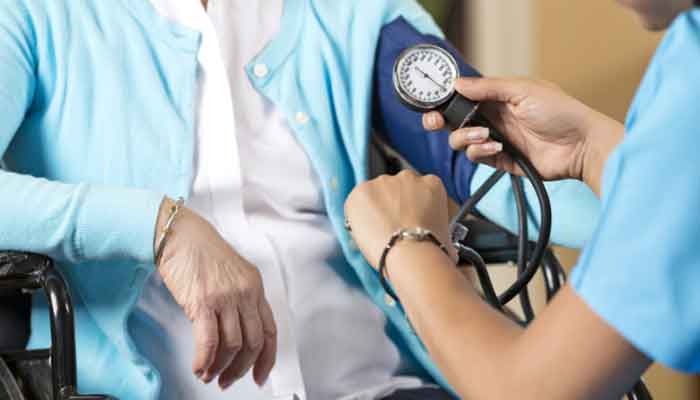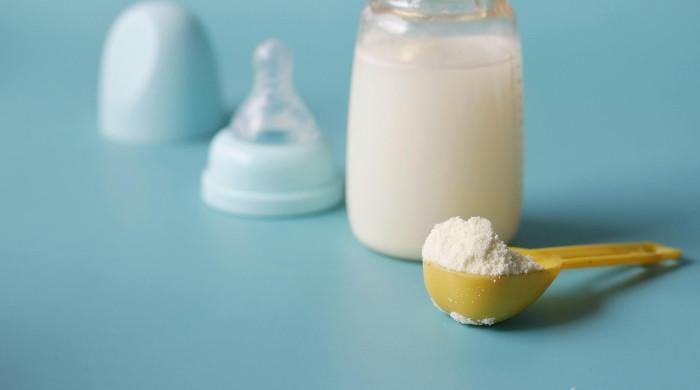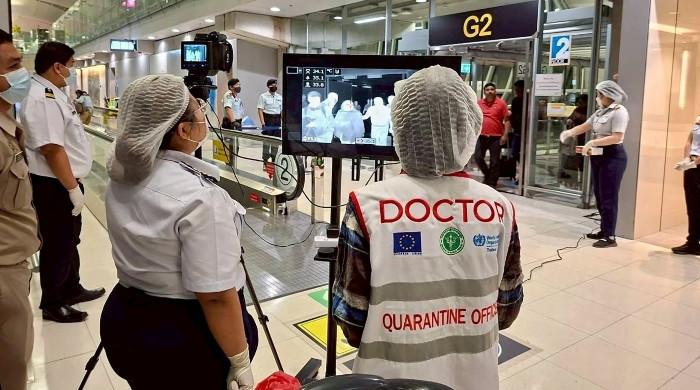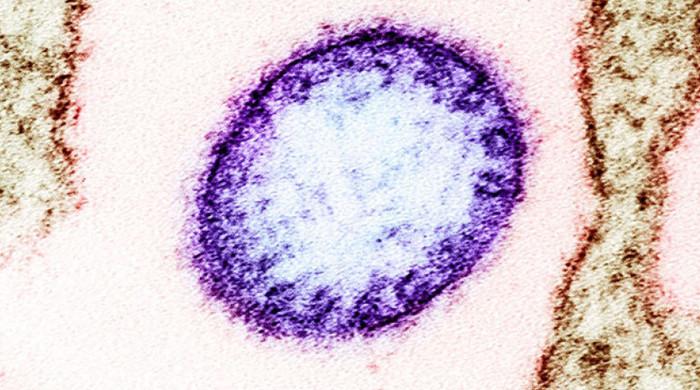COVID-19 can cause serious complications for hypertension patients: experts
COVID-19: Medical experts stress on monitoring blood pressure, controlling the diet and exercising regularly each day
August 24, 2020

People who suffer from unmanaged or uncontrolled blood pressure can develop serious complications if they contract coronavirus, warned medical experts on Sunday.
According to a report in The News, people with unmanaged blood pressure can develop "serious complications, including multi-organ failure, heart failure or heart attack, and large strokes if they contract COVID-19".
Experts advised those suffering from hypertension to regularly monitor their blood pressure and ensure strict diet control, physical activities and medication.
"In Pakistan, around 40 to 50% people over the age of 40 are hypertensive, or they have high blood pressure," said experts.
They warned that COVID-19 can prove disastrous for those who have uncontrolled blood pressure as well as diabetes because these diseases severely damage vital organs, including the heart, kidneys and lungs.
Latest scientific studies have revealed that hypertension is the most prevalent comorbidity among patients around the world infected with the coronavirus, experts said. They added that meta-analysis of seven studies with 1,576 COVID-19 patients around the globe has shown that 21.1% of the COVID-19 patients were hypertensive.
“People with hypertension or high blood pressure are not at a higher risk of contracting COVID-19 as compared to healthy people,” said Professor Khawar Kazmi, a cardiologist associated with the National Institute of Cardiovascular Diseases (NICVD).
“But they can develop serious complications after getting infected with the coronavirus if their blood pressure is uncontrolled or unmanaged. Hypertensive people need to regularly monitor their blood pressure at home and take measures to control it to avoid serious complications.”
Prof Kazmi, who heads preventive cardiology at the NICVD, said that the coronavirus causes inflammation of the blood vessels and other organs of the body, which causes serious complications for patients of hypertension.
“We don’t have definite data, but people with uncontrolled blood pressure and even unmanaged diabetes are generally at a higher risk of developing complications. These patients already have issues with their heart, lungs and kidneys, and if they contract COVID-19, they can develop serious complications,” he said.
“The first thing is to monitor your blood pressure at home in a state of calmness. Measuring blood pressure during an emotional state, physical activity or headache is not advisable. Blood pressure should be monitored when a person is at ease,” he added. He advised consulting a consultant cardiologist to manage blood pressure.
A balanced diet with less salt and lots of fruit, exercising daily for 45 minutes can help in reducing diabetes. Also, it can cut the risk of contracting coronavirus as one's immune system gets strong.
“There is no need to take any extra supplements or medicines to boost your immunity. All you have to do is eat a healthy and balanced diet, exercise regularly for at least 45 minutes, take the prescribed medicines regularly and reduce your salt intake.”
Dr Fawad Farooq, another NICVD cardiologist, said people who suffer from high blood pressure are two to three times more at risk from developing serious complications from the COVID-19. This includes pulmonary edema (fluid build-up in lungs), heart failure or heart attack, or having a large stroke if they contract COVID-19, adding that around 25 to 30% of the population is hypertensive.
“Various organs of people with high blood pressure get affected if their disease remains uncontrolled for a long period of time, and in these circumstances, if a person contracts COVID-19, it can prove disastrous for such persons.”
For those suffering from blood pressure, here is what Dr Farooq had to say.
“Blood pressure should be monitored in a relaxed state. Now digital blood pressure monitors are available in the market that can help measure BP at home. In case of high blood pressure, consult a doctor, and in addition to taking medicines, reduce your weight, eat a healthy and balanced diet, and exercise regularly to maintain your blood pressure.”
Senior cardiologist Dr Akram Sultan advised hypertensive patients to regularly monitor their blood pressure at home in a relaxed state, saying that measuring blood pressure while crying, or during a headache or in an emotional state is not advisable.
“Blood pressure gets high if a person is in an emotional state, which includes having anxiety or any kind of stress, so people should monitor their blood pressure when they are at ease and not during any mental or physical stress.”











